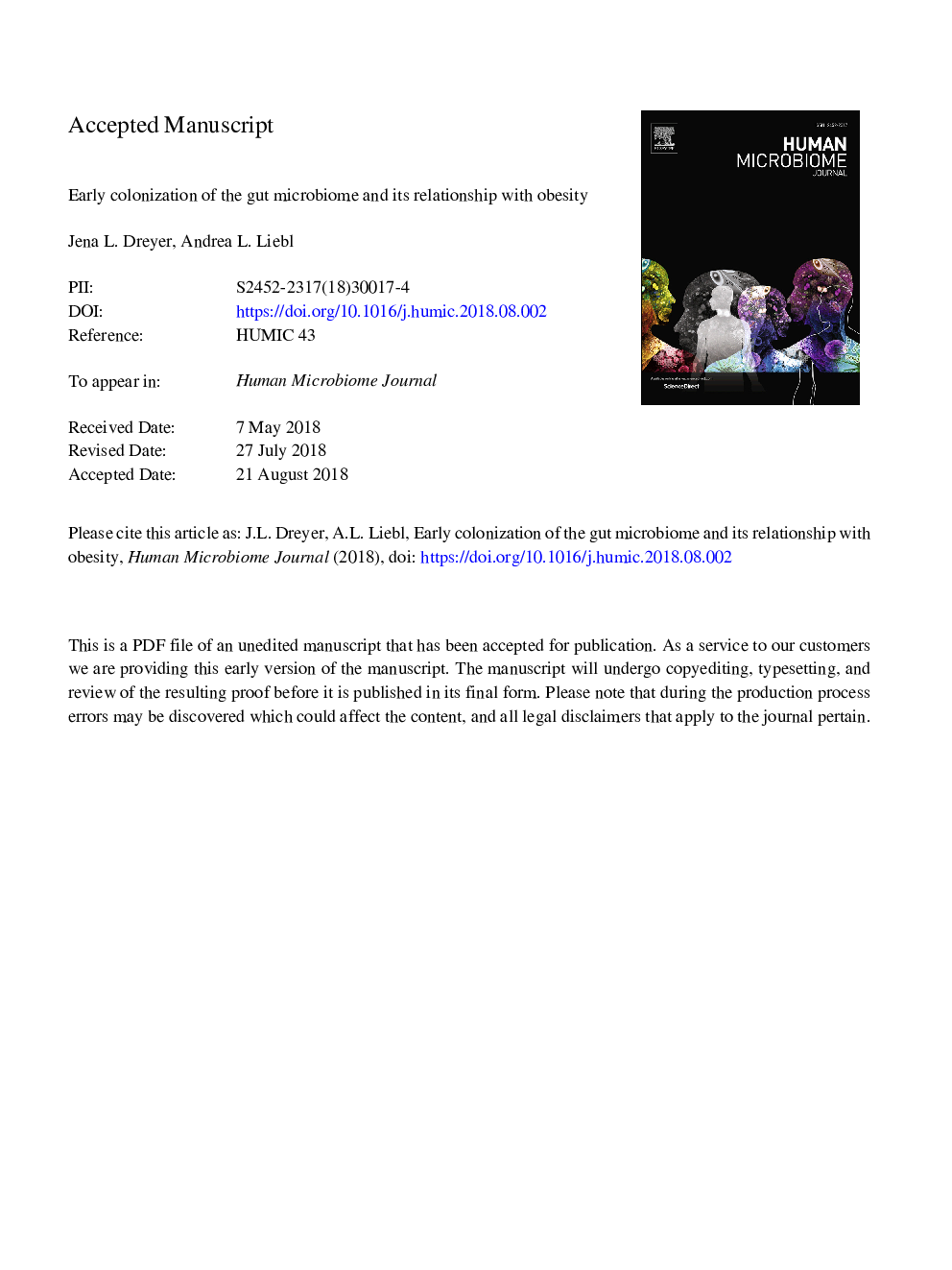| Article ID | Journal | Published Year | Pages | File Type |
|---|---|---|---|---|
| 12121882 | Human Microbiome Journal | 2018 | 19 Pages |
Abstract
Adult and childhood obesity rates are increasing. Childhood obesity, in particular, is a complicated, multifactorial condition that is not always explained by overeating. To address rising rates of obesity, researchers have begun to address how the composition of the gastrointestinal microbiome influences metabolism, energy absorption, and weight regulation. Colonization of the gut begins in early life and is highly influenced by method of birth (vaginal versus Caesarean), method of feeding (formula feeding versus breastfeeding), and exposure to antibiotics. Not surprisingly, an infant's gut microbiome is very likely to resemble that of its mother. However, this means that aberrant bacteria characterized by an obese microbiome can also get passed on from an obese mom to child. To promote the colonization of a healthy infant gut microbiome, the optimal strategy generally is to have a vaginal delivery followed by exclusive breastfeeding until 6â¯months of age with minimal exposure to antibiotics. However, this is not always possible and overweight or obese mothers risk passing on aberrant bacteria to her children. In such cases, in conjunction with medical professionals, women can consider adding pre- and probiotics to their diets during pregnancy and lactation as well as other mitigation strategies. The colonization of an infant's gut with optimal bacteria may help reduce the risk of obesity later in life.
Related Topics
Life Sciences
Immunology and Microbiology
Microbiology
Authors
Jena L. Dreyer, Andrea L. Liebl,
